10 great changes of the last millennium
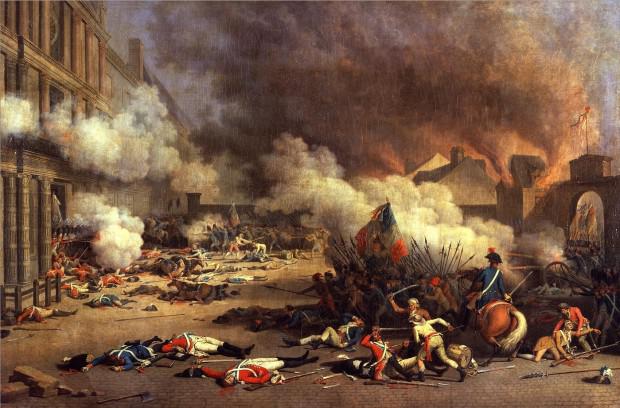
Before you - a translation of an article by Jan Mortimer, one of the authors website www.theguardian.com.
blockquote> The last millennium has formed a real wave of change. But which of them actually had a decisive influence on the modern world? The historian Ian Mortimer was able to identify 10 main points that caused the greatest changes.
1. The 11th century: Zamki

For most people, the locks are strongly associated with conflicts. However, the locks should be seen as a bastion of peace and not war. Until the 11th century in England and in Europe castles it was not too many. This lack of defense lines meant that those living in these lands, is relatively easy to win: the invasion of William the Conqueror in England-was successful largely because of the lack of a sufficient number of locks. However, in the 11th century, the feudal lords throughout Europe built many defensive structures to make it easier to protect their own land. Thus the invaders became more difficult to cope with them. As a result, the owners of the castle began to see themselves not as leaders, as well as owners of certain areas. That is, there were political leaders, whose duty is to protect its borders from attacks by neighbors. There is a need to control only its people but also its limits. And it was a huge change.
2. The 12th Century: Law and poryadok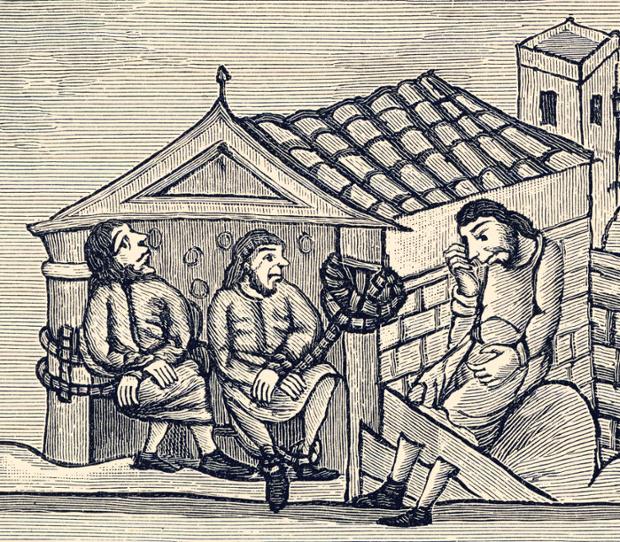
If you plan to visit another country, the most important issue that will excite you to visit, it is: Does a safe in this country? Perhaps no other factor does not deter people from visiting the country as the absence in this country of law and order. Hence, the introduction of systematic legislation was another turning point in European history. This happened through the drafting of legal books, through the development of jurisprudence, and in Britain in particular - through the development of so-called "Eyre" and through the subsequent establishment of the jury.
3. The 13th century: Rynki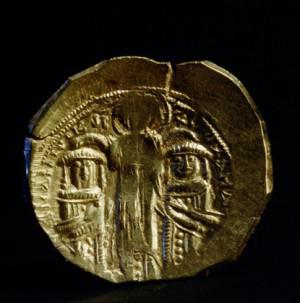
It is known that the money existed for thousands of years. However, this does not mean that they always serve the same function, which is performed today. At the beginning of the 13th century in England, used the money to a few. The vast majority of people simply exchanged useful commodities. Feudal lords commanded his peasants, and allowed to keep small plots of land so that they can feed themselves. The only people who regularly earn silver pennies were the inhabitants of the cities with the markets. Such cities were not too many, however, throughout the 13th century in England, in 1400 there was major markets. As a result, Britain and then Europe began to gradually move toward the mercantile economy, because you can not govern effectively, which works only barter system. By 1300, the ninth year, several countries began to mint gold coins large denomination, and banking companies in Italy was granted the first loans.
4. The 14th century: Chuma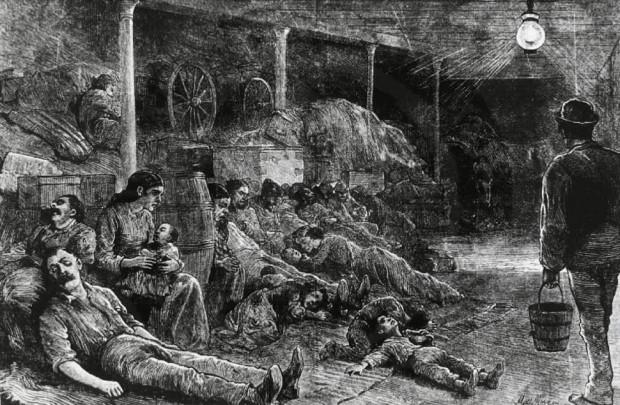
The biggest disaster that befell humanity and has become the most important event in the history of the Western world had nothing to do with technology. During the plague in some countries, nearly half the population died, so that the death rate then was 200 times higher than during the First World War.

Socio-economic consequences of the disaster were very deep. The old feudal system was dealt a heavy blow. The peasants who survived during the plague could charge a large fee for their work, as a result they were able to buy small assets, and some of them were even able to become nobles. Also, people began to ask questions about the nature of the disease, and about the relationship between humanity and God: how can such a merciful Lord was able to kill so many innocent children?
At the same time, people were able to look at death in a new light, and began to preach the religion of extreme modesty and moderation in all things. Thus, not only kills the plague, yet she was able to change the way people live and strongly influenced their outlook.
5. The 15th Century: Kolumb
The most important relationship in the history of mankind - the relationship between humanity and the earth. The more you have the land, the more you have of natural resources. Thus, Columbus - one of the most important figures in the history of mankind. It was he who showed the way to Europeans vast territories, which they previously could not dream. No new technology is not used: the compass was invented at least three centuries before Columbus discovered Hispaniola in 1492, the year. Make it made him a lot of social and economic pressure, plus he wanted to become a wealthy landowner. The consequences of this discovery turned out to be more serious than just the spread of the Spanish language, which is today considered to be the most widespread in the world (right after Chinese). Prior to 1492, the year a lot of people believe that the ancient Roman and Greek writers had enormous knowledge. However, in the works of Ptolemy and Strabo there was no reference to the enormous American continent. People quickly realized that if the ancient writers have missed such a huge continent, they probably had no idea, and many other things. Thus, crossing the Atlantic was one of the reasons for the revaluation of knowledge accumulated over thousands of years.
6. The 16th Century: Reducing Crime
Preindustrial past by today's standards it was very cruel. The homicide rate was incredibly high. However, since 1500, the year this level began to decline, not only in England but throughout Europe. Every 100 years, the level is reduced by about half, until it again began to grow in the late 20th century. Reasons for the decline were many: communication has become better, the mass literacy, more and more people learned to write, which allowed the authorities to act more effectively and more often to catch criminals. As a result, people have begun to think twice before you throw into the fray with a knife in his hand. Like many other changes in past centuries, it was a gradual process, so many of his contemporaries did not comment on: they simply perceive their society as safe for granted.
7. The 17th Century: Science revolyutsiya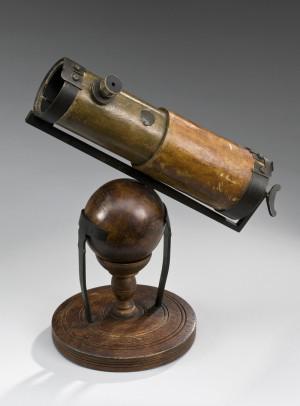
Superstitions have been an integral part of the 16th century, moreover they often had very serious consequences. If someone who you do not like, suddenly died, and you were accused of his murder by witchcraft, it was possible as much as necessary to shout that there is no magic there. All that was useless. Because magic recognized in law.
The 17th century was the century of new scientific theories. The old notion that the sun revolves around the earth, it was finally disproved by Galileo. People with fatal diseases that 1600, the year just prayed to the god of health, in the 17th century began to see a doctor. But most importantly - it appeared and started to spread widely faith in science.
In 1687, the year when Newton published his "Elements" to understand this book could only a handful of people. But in 1700, the year people had solid confidence in the fact that it may help scientists better understand the world around us, and that there is no need to resort to superstition to explain the seemingly mysterious things.
8. The 18th century: the French Revolution
There is no doubt that the French Revolution of 1789 was the revolution not only for France, but for the entire Western world. It was the first national test ideas lies in the fact that all people should be equal before the law. It made all European thinkers to reconsider the idea of human rights, the idea of political equality and women's rights. Without the French Revolution, it is impossible to further the great social reforms of the 19th century, such as the abolition of slavery, introduction of universal education, and more.
9. The 19th Century: Kommunikatsii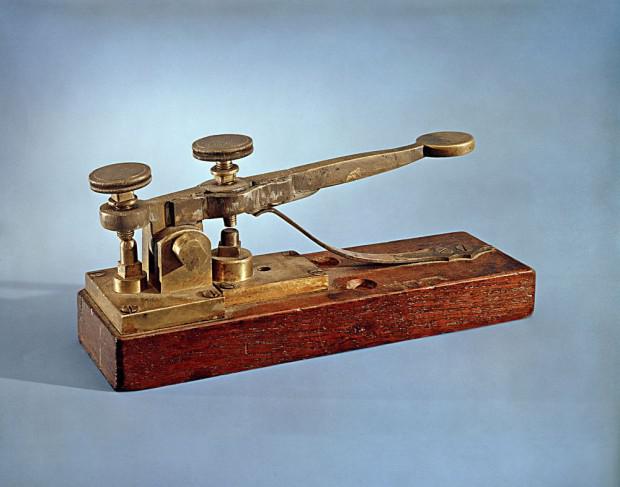
We believe that communication revolution has occurred in the 20th century. And for many people it was so: the majority of our ancestors in 1900 had no personal phone, but the year 2000, 40% of us have mobile phones. However, the real revolution in communications began the 19th century: in 1900 it was possible to send telegrams. In 1805 the news of the Battle of Trafalgar (October 21) was delivered to the Admiralty, only 6 of November. Easy trip from Falmouth to London took one lieutenant 37 hours, and 21 times he changed horses. After the laying of intercontinental cable in 1872 the opportunity to send messages faster. Railroads, the telegraph and then the telephone made communication faster, and in some cases - almost instantly. And it was not much less than the revolution of modern means of communication.
10. The 20th Century: The invention buduschego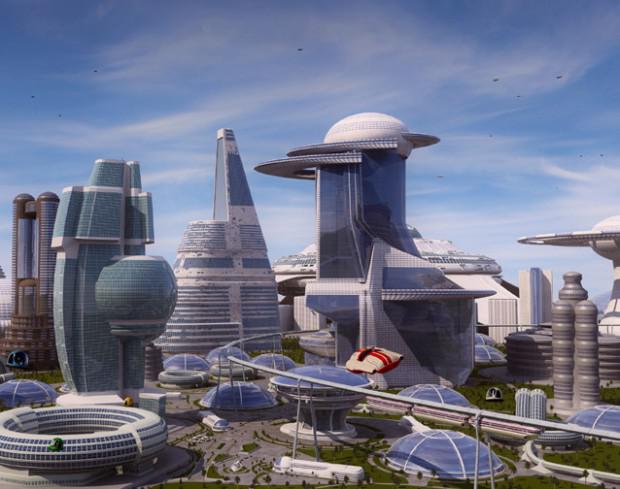
There is no doubt that the technology really changed the way we live and die in the 20th century. However, the technology also hides the changes that may be much more profound. In 1900, few people seriously consider the future. William Morris and several socialists articulated utopian vision of the future world, but serious research about where society is moving, there was little.

And today we expect almost everything: what will be the weather tomorrow, we need some accommodation, how much will cost our pension savings, where we recycle the garbage in the next 30 years, and so on. UN predicts world population levels up to 2300-year. Reports about global warming - it is hot news. Novels about the future cost mere pennies. Newspapers and the Internet are full of stories is not about what is happening now and what will happen. So the 20th century may be seen as abroad, where humanity began to seriously consider the future as well as past and present.
via factroom.ru


































